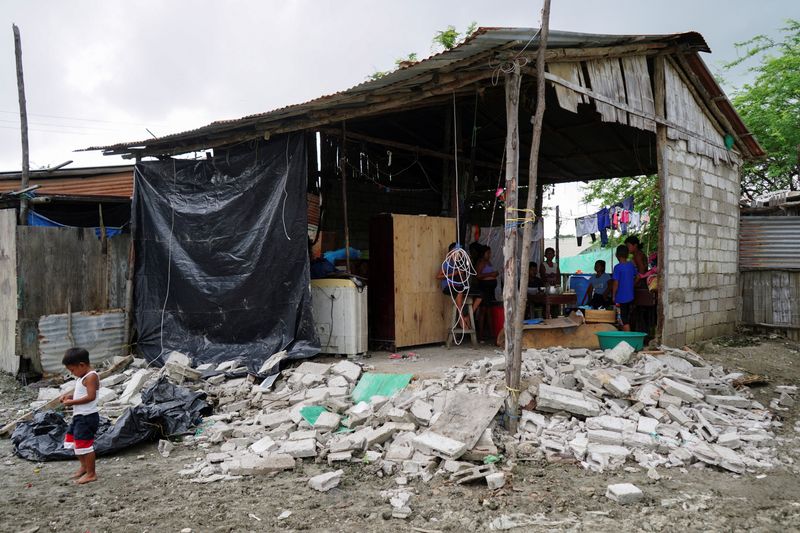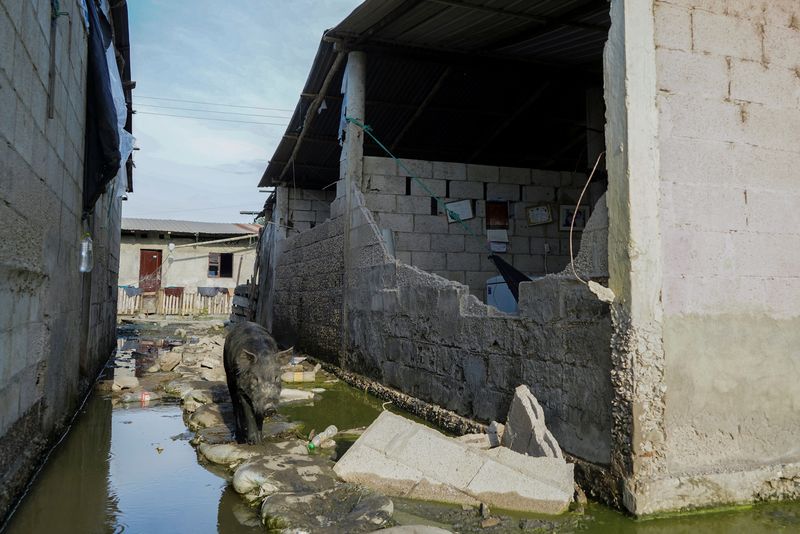(Reuters) -Ecuadorian and Peruvian authorities worked on Sunday to address the damage caused by the strong earthquake that shook the region the previous day, leaving at least 15 dead and hundreds injured.
The 6.8 magnitude quake struck the Ecuadorian coastal province of Guayas at midday on Saturday, with residents reporting shaking in much of the country as well as in Peru's northern border towns.
"Our goal is to take immediate actions that return us to normality," President Guillermo Lasso said in a video Sunday evening. "You have my full support to repair all the damage as soon as possible, for which the Ministry of Finance has already allocated the necessary resources."
Lasso reported 14 fatalities, as well as more than 460 people with injuries. He said 89 homes had been destroyed and another 192 affected. Dozens of health centers and educational units also registered impacts, he said.
He said the government had created a housing lease voucher and would acquire homes in which families who lost their homes could stay.
The Risk Management Secretariat said it sent a team to Puna Island early on Sunday, near the epicenter of the earthquake, to assess needs and deliver humanitarian aid.
State-run oil company Petroecuador reported that an electrical failure had affected six oil fields, leading to a drop in production of some 17,400 barrels of oil.
Petroecuador said an offshore platform near the epicenter also suffered damage that caused machinery to fail, temporarily reducing production. The firm calculated the loss to production at over 20.5 million cubic feet per day.
Peruvian authorities reported one death, four collapsed homes and five more left uninhabitable, while essential services and transportation infrastructure were undamaged.

During his Sunday message, Pope Francis sent his condolences for the losses and "all those who suffer" because of the earthquake. Other governments, including Chile's and Cuba's, sent messages of solidarity.
Ecuador and Peru are part of the so-called Pacific Ring of Fire, an extensive area that surrounds the Pacific Ocean where clashes between the continental plates are frequent.
